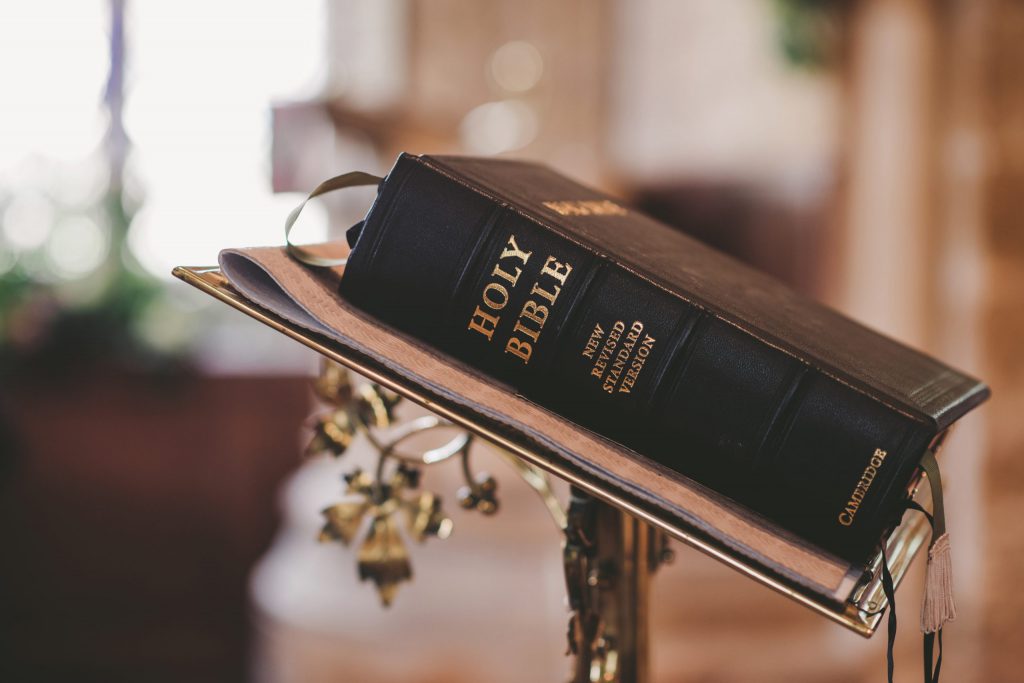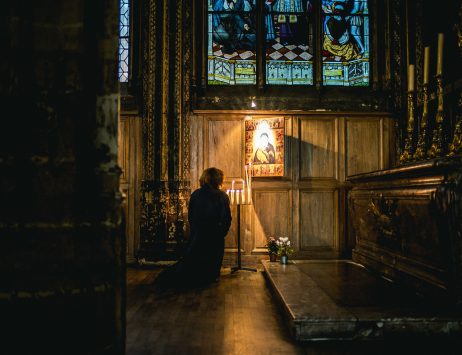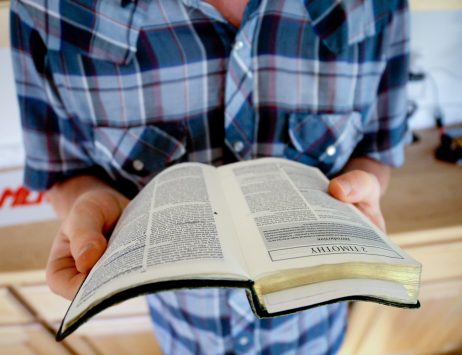By Jon Stotts
I recently participated in a conversation among a group of Catholics about the differences between watching Mass online and going to Mass in person. Nearly all of the differences we listed had to do with the importance of bodily presence to one another. Being bodily present makes the parts of the Mass somehow more real than their one-dimensional digital copies. As an illuminating example of this, one person in the group shared that she really missed the opportunity to hear the Scriptures read aloud in our church space. Hearing the words of the Bible on the lips of someone present, she said, with that lector’s own impressions given in vocal tone and emphasis, makes the words come alive in a personal and powerful way.
In my last post, I talked about how the Scriptures connect us to God, and I mentioned that Christ becomes present to us in a distinctive way when the Scriptures are proclaimed at Mass. I want to talk about how this is connected to what the person in my group was saying above. Because we believe that the Scriptures are the word of God given to us in writing, we trust that God speaks to us in them. This is true whether we’re reading the Bible privately, discussing a passage with a small group, or hearing the Sunday readings in church.
That said, I think that something special happens when we gather together in faith to listen to someone proclaim the Scriptures to us, something that doesn’t occur as readily when we’re reading privately or even taking part in a Bible study. My claim is that Christ becomes present to us in a special way when we hear the Scriptures in church because of how our intentions — what we anticipate and what we desire — are shaped by the liturgy.

Let me break this down a little bit. When we talk about hearing the Bible read at Mass, we tend to use the word “proclaim” instead of the word “read.” The lector at Mass doesn’t just read the Scriptures aloud; she proclaims them. The difference here may be subtle, but I think it’s important, and it gets to the heart of what my colleague was sharing about the power of hearing someone speak the words in the church space. To “read aloud” is simply to vocalize the words on the page, and anyone who happens to be listening might hear. But to “proclaim” is to communicate what has been written to an intended group of listeners. The lector proclaims the readings as a message intended for someone in particular: the assembled body of believers, gathering in Jesus’ name to hear the word of God.
This is why hearing the Scriptures proclaimed in Church connects us to the presence of Christ in a special way. When we listen to the lector, we become conscious of ourselves gathered together as God’s intended audience: this assembled body, on this day, in this space. The reading of the Scriptures becomes an event in the life of the Church. Here’s how Dei Verbum, Vatican II’s dogmatic constitution on divine revelation, puts it:
“For in the sacred books, the Father who is in heaven meets His children with great love and speaks with them; and the force and power in the word of God is so great that it stands as the support and energy of the Church, the strength of faith for her children, the food of the soul, the pure and everlasting source of spiritual life” (n. 21).
While God can speak to us in the Scriptures whenever we read them, something special happens when we gather together and let the liturgy shape our hearing. We hear the word of God as it is intended, not a private letter to an individual, but the words of a loving parent to a circle of children, the words of the Father to the people summoned into being by the Son as the temple of the Holy Spirit. When we listen to the Scripture proclaimed to us, we remember again who we are and who God has called us to be.
During this time of social distancing, it can be easy to forget who we are. Quarantine threatens to make us merely individuals. Digital liturgies can reinforce our sense of separation and of artificiality. But they can also sharpen our longing to gather together again around the table. This shared longing reminds us that we are not alone, that the bonds of faith unite us even in quarantine, and that God’s own longing for us will bring us safely into the kingdom.
Jon Stotts is a professional lay ecclesial minister in Nashville doing Christian initiation, ongoing conversion, and parish enrichment at Christ the King Catholic Church. Jon has a Ph.D in Religion from Vanderbilt University and a M.A. in Theology from Saint Meinrad School of Theology. He’s married and has three kids. In his free time he writes, bakes bread, and dances with his family.



